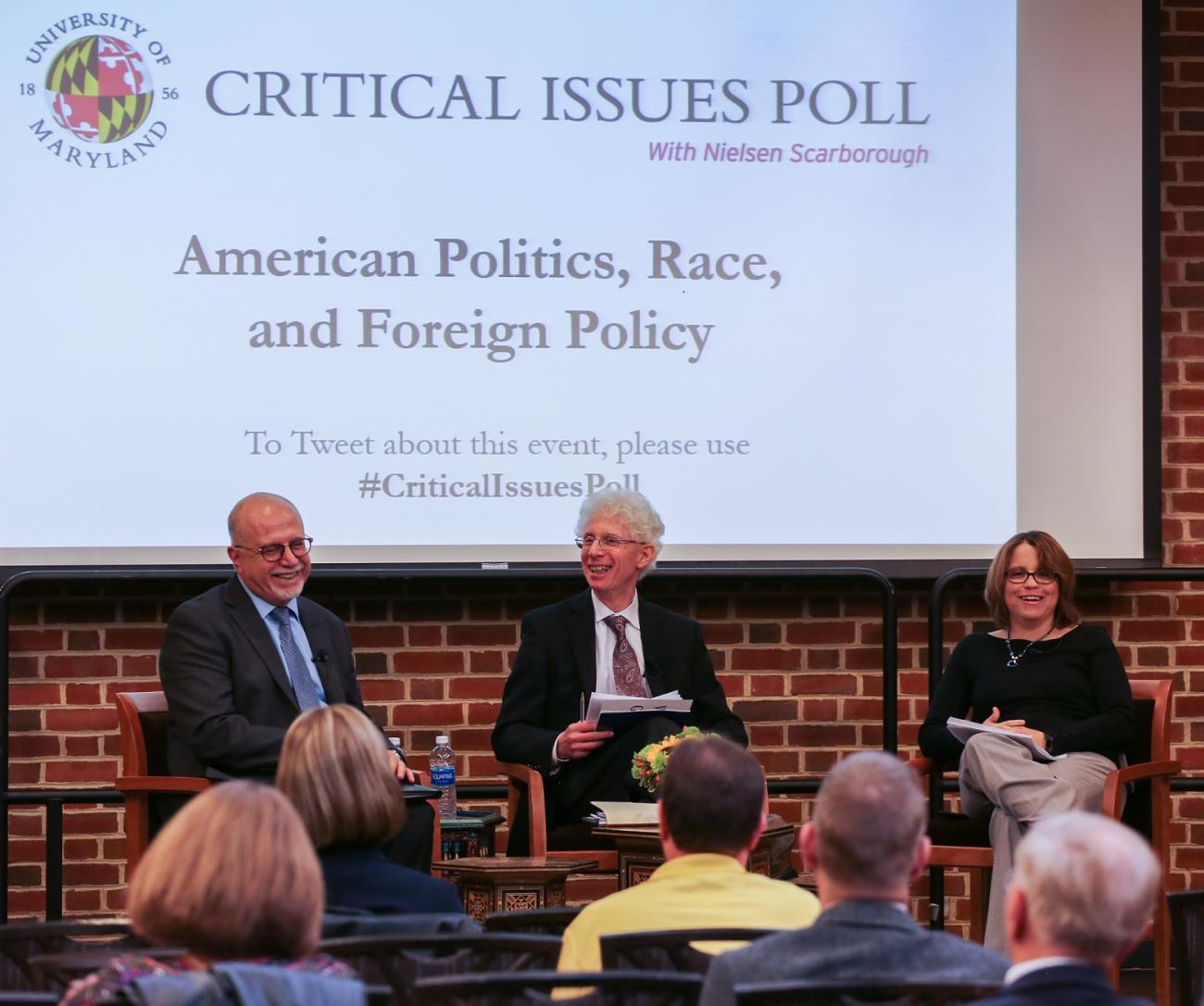Attitudes on Gun Violence: Americans Born in the US Differ from Those Born Outside -- and Other Takeaways from Our Latest Poll

By Shibley Telhami
May 8, 2023
A recent University of Maryland Critical Issues Poll with Ipsos, which I direct with my colleague Professor Stella Rouse, probed American public attitudes on gun violence. The poll carried out through Ipsos among 1,203 respondents from their KnowledgePanel, March 27-April 5, 2023, had a margin of error of 3.2%. Here are three key findings from the poll.
First, US-born and foreign-born respondents differ markedly in their attitudes.
It’s well established that the US leads developed countries by a wide margin in both the number of guns and the number of gun homicides, two correlated measures. This may be one reason why US-born and foreign-born Americans express different attitudes on guns and gun violence.
Those born outside the US were more likely to express views in support of greater gun restrictions compared to those born in the US. Of those foreign-born respondents, only 14% believed that tighter school security was the most likely to reduce gun violence against children, while 33% said fewer guns would do so and 42% said both equally. In comparison, 32% of those born in the US said that gun violence against children would be reduced by tighter security, 19% said by fewer guns, and 28% by both equally. While 64% of foreign-born respondents said stricter gun control would lead to fewer mass shootings, 49% of US-born respondents said the same.
Second, attitudes vary more by race and education than by age.
As we found in previous Critical Issues Poll findings, Black Americans are more likely to consider gun policy “very important” compared to other races/ethnicities. Our recent poll expands on these previous findings. When looking at the impact of guns on crime rates, Black Americans were more likely to say that if more Americans owned guns there would be more crime (41%) or that it would make no difference (46%) than White Americans (28% and 40%, respectively). Hispanic Americans were in the middle (38% and 29%, respectively). In comparison, Americans of different age groups did not vary as largely in their views. Thirty-seven percent of those under 30 years old said that if Americans owned more guns there would be more crime, and 38% said it would make no difference, compared to 33% and 39%, respectively, of Americans 30 years of age and older.
Americans with higher education were more likely to say that more guns would lead to more crime: 27% of high school graduates and some college said more guns would lead to more crime, compared to 40% of those with a bachelor’s degree and 48% of those with a master’s degree or higher who said the same.
Third, the partisan gap on the impact of guns on crime has widened since 2021.
When asked about whether stricter requirements to legally obtain a gun would cause fewer mass shootings or more, only 34% of Republicans said it would cause fewer mass shootings, compared to 80% of Democrats. Most Republicans (58%) said it would make no difference in the number of mass shootings, compared to only 16% of Democrats. In addition, whereas 55% of Republicans said that tighter school security was more likely to reduce gun violence against children, only 8% of Democrats felt the same, with 43% saying fewer guns in the community would be more effective.
Looking at how access to guns would impact crime rates, there is a significant divide in Republicans’ and Democrats’ views. Most Democrats said that more guns would cause a rise in crime in the United States, while 49% of Republicans said it would cause less crime. At the same time, only a quarter of Democrats said more guns would have no impact on crime rates compared to 42% of Republicans who said the same.
Notably, the percentage of Republicans who say that more guns would decrease crime has declined in recent years. A Pew Research Center Poll in 2021, fielding the same question as ours, found that 56% of Republicans said that more guns would lead to less crime. Our latest poll showed that percentage dropping to 49%. In comparison, the percentage of Democrats saying that more guns would lead to more crime has grown from 55% in 2021 to 68% in 2023.
An in-depth analysis of the poll results will be part of a full report to be released later this month. This report will include expanded demographic analysis as well as detailing the findings of other questions about the importance of various policy options for preventing mass shootings. The report will also include images from our recent Sadat Art for Justice Peace Competition on “Victims of Gun Violence,” as well as highlights from other campus projects on gun violence.
Kirsten Langlois assisted in the preparation of this report.
Photo: "Neverending" by Mary Mena from the Sadat Art for Justice and Peace Permanent Collection, Victims on Gun Violence (2023)



